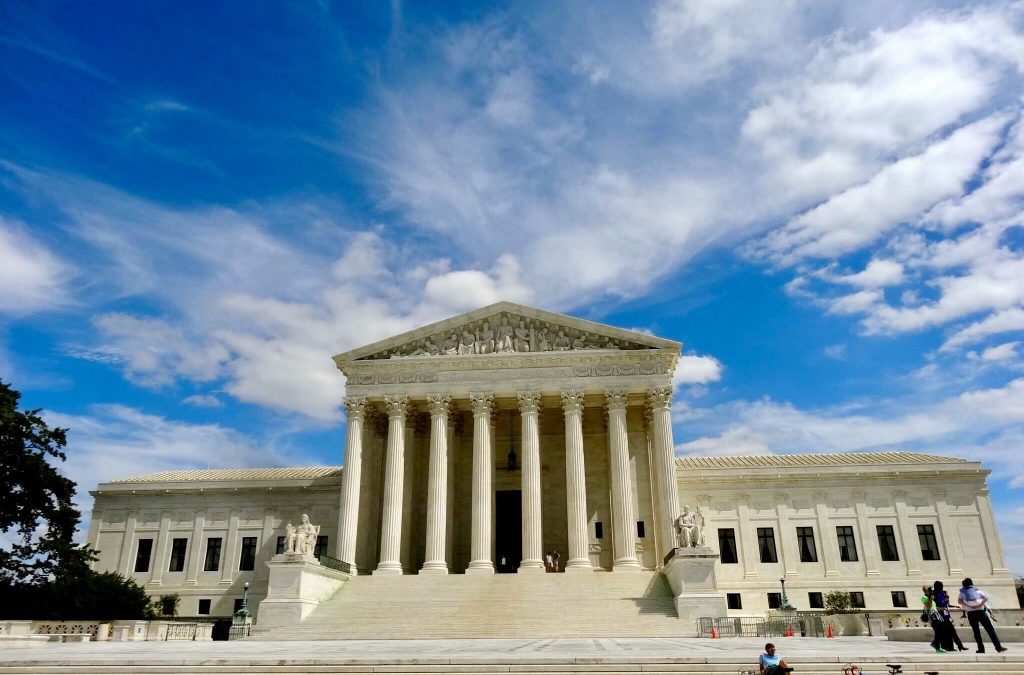Michigan has a crime victim compensation fund. You can contact them using the various links on this page. This post is just to provide you with information. We do not provide any services for this topic.
Crime Victims
Victims of crime often face lasting repercussions that extend far beyond the initial act, affecting them physically, emotionally, and financially, but it is important to remember that you are not alone in this journey.
If you or someone close to you has been affected by a crime, you may be eligible for Crime Victim Compensation coverage for certain expenses.
This program provides assistance for out-of-pocket medical costs, lost wages, funeral expenses, counseling services, and other financial burdens incurred as a direct result of the crime.
What is Crime Victim Compensation?
If you or someone you care about has been affected by crime, you may be eligible for compensation to help cover specific expenses related to the incident.
This program provides financial assistance for out-of-pocket medical expenses, lost wages, funeral costs, counseling services, and other related expenses incurred by individuals who have suffered harm as a direct result of a crime.
Crime Victim Compensation serves as the last option for financial support, meaning you must first exhaust your private insurance and any available public funds to qualify for this compensation.
Do You Qualify?
Who is considered a victim?
The following individuals may be considered a victim and qualify for crime victim compensation:
- A person who was physically, emotionally, psychologically, or mentally injured as the direct result of a crime.
- A sexual assault victim.
- A person injured while trying to help a crime victim.
- Eligible individuals with out-of-pocket expenses as a direct result of a crime.
- A Michigan resident injured in another state that doesn’t pay compensation for a nonresident.
Who is considered a claimant?
There are a number of definitions of eligible claimants under the law in Michigan, including:
- A victim.
- A person related to the victim by blood or affinity to the second degree, including child born after death of deceased victim.
- A person who was in a dating relationship with the victim at the time of the crime.
- If the victim was a guardian or primary caregiver to an adult who is physically or mentally incapacitated, that adult who is physically or mentally incapacitated.
- If the victim was a guardian or primary caregiver to a minor, that minor.
- If the victim is a minor or is an adult who is physically or mentally incapacitated and a dependent, the guardian/caregiver to that victim.
- A guardian/caregiver to a victim when the victim was a minor.
- A person who assumes legal obligation or voluntarily pays for a victim’s funeral/burial expenses.
- A person who, at the time the crime occurred, was a household member with the victim (an individual who resides in the same dwelling unit).
- May require proof of permanent residence to demonstrate the individual is eligible, including a lease agreement, utility bill, license registration, document showing mailing address, etc.
- A person who was previously a household member of the victim for a period of not less than 2 years AND who is related to the victim by blood or affinity.
- A dependent who suffers loss of support as a result of the death of the victim who died as a result of the crime.
Covered Crimes
A crime considered eligible for Crime Victim Compensation under Michigan law is defined as “A crime committed under the laws of Michigan, the United States, or a Federally recognized tribe in Michigan, including pregnancy or death, or that poses a reasonably perceived or actual threat of injury or death within Michigan.”
Examples of eligible crimes include:
- Homicide
- Robbery
- Assault
- Carjacking
- Hate Crime
- Kidnapping
- Child Abuse
- Domestic Violence
- Sexual Assault
- Human Trafficking
- Stalking
- Elder Abuse
- DWI/DUI
- Terrorism/Mass Violence
Acts of international terrorism and crimes committed against a Michigan resident in another state (that does not have a victim compensation program) that would be considered a crime under Michigan law is also be considered an eligible crime.
Eligibility Requirements
The following are required for a victim/claimant to be eligible for Crime Victim Compensation benefits:
- An individual must be emotionally, physically, psychologically, or mentally injured as a direct result of a crime.
- If the victim is a minor, deceased, or mentally incapacitated, a claimant can file a claim for expenses incurred as a result of the victim’s injuries.
- A victim who experiences a crime that inflicts bodily harm – including pregnancy or death – or a reasonably perceived or actual threat of injury or death under the laws of the United States, State of Michigan, federally recognized Tribal land, or in another state where the crime committed would be considered a crime under Michigan law.
- An act of international terrorism committed outside the territorial jurisdiction of the United States would also be considered eligible.
- The crime must be reported to law enforcement (waivers may apply).
- If the crime was a sexual assault, then a sexual assault forensic exam may be used in lieu of reporting to police.
- The victim or claimant must cooperate with law enforcement officials in the investigation and prosecution of the case (waivers may apply).
- Cannot be criminally responsible/an accomplice to the crime or involved in misconduct that contributed to the injury at the time of the crime.
- At least $200 of out-of-pocket loss(es) OR at least five (5) days of lost wages or support.
- File a claim within five years from the date of injury or discovery (waivers may apply).
- Seek reimbursement from other sources (health insurance, Medicaid, short/long term disability, etc.) before applying for compensation benefits.
Questions?
If you have questions about the Crime Victim Compensation program or the application process, call or email the Crime Victim Compensation program for assistance. If you need help completing your application, contact your local county prosecutor. You can search for your local prosecutor by clicking here.
Here is a Michigan Law
WILLIAM VAN REGENMORTER CRIME VICTIM’S RIGHTS ACT (EXCERPT) Act 87 of 1985
More Rights You Should Know

Supreme Court 8-1 Gun Possession Decision Changes Second Amendment
Supreme Court 8-1 Gun Possession Decision Changes Second Amendment Landscape Forever!Issue: Whether 18 U.S.C. 922(g)(1), the federal statute that prohibits a person from possessing a firearm if he has been convicted of “a crime punishable by imprisonment for a term...

Listen Live to the US Supreme Court
Listen live to arguments in the Supreme Court. On Monday, the Supreme Court is set to hear arguments over the phone for the first time ever due to the coronavirus pandemic; they'll hear 10 cases remotely from now until May 13. But that's not the only history being...
Other Articles
When Can Your Silence Be Used Against You in a Legal Situation?
US Supreme Court - Salinas v. TexasWhen Can Silence Be Used Against You? In the realm of criminal law, the Fifth Amendment to the United States Constitution grants individuals critical protections, including the right to remain silent and the right against...
Supreme Court 8-1 Gun Possession Decision Changes Second Amendment
Supreme Court 8-1 Gun Possession Decision Changes Second Amendment Landscape Forever!Issue: Whether 18 U.S.C. 922(g)(1), the federal statute that prohibits a person from possessing a firearm if he has been convicted of “a crime punishable by imprisonment for a term...
Facial Recognition and Wrongful Arrests
Facial RecognitionHow Technology Can Lead to Mistaken-Identity Arrests Facial recognition technology has become increasingly prevalent in law enforcement, but its use raises critical questions about civil liberties and accuracy. One landmark case sheds light on the...
People v. Chandler Case: Protecting Fourth Amendment Rights
Court of Appeals of Michigan PEOPLE of the State of Michigan, Plaintiff-Appellee, v. Javarian CHANDLER, Defendant-Appellant. No. 368736 Decided: June 27, 2024Before: Borrello, P.J., and Swartzle and Young, JJ. Introduction In the People v. Chandler case, the Michigan...
What are Miranda Rights?
What are Miranda Rights?Miranda Rights, also known as the Miranda warning, are the rights given to people in the United States upon arrest. “You have the right to remain silent. Anything you say can and will be used against you in a court of law…” These rights stem...
What is the Exclusionary Rule?
What is the Exclusionary Rule?The Exclusionary Rule is a legal principle in the United States that prevents the government from using most evidence gathered in violation of the United States Constitution. Specifically, it applies to evidence obtained through an...
Government Drones in Your Life – Yes, They Made up a Reason
Long Lake Township v. Maxon The Costs Outweigh Benefits in Exclusionary Rule Application and the Slippery Slope of Fourth Amendment ProtectionsThe recent decision by the Michigan Supreme Court in Long Lake Township v. Maxon represents a significant shift in the...
Supreme Court Opinion – Created federal agencies need judicial oversight
Summary of the Opinion in Loper Bright Enterprises v. RaimondoIn Loper Bright Enterprises v. Raimondo, the Supreme Court addressed the enduring precedent set by Chevron U.S.A., Inc. v. Natural Resources Defense Council, Inc., which has shaped administrative law for...

















